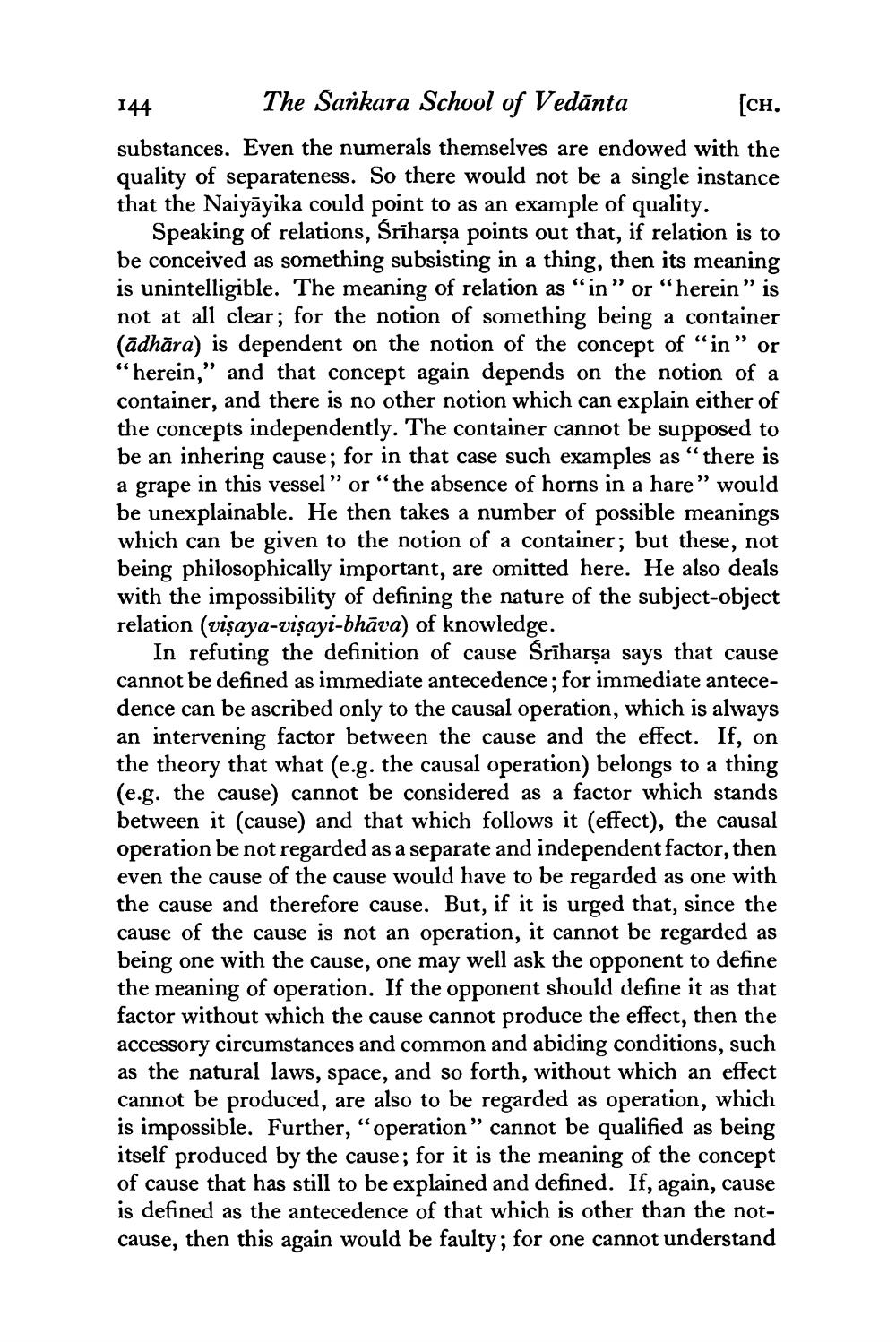________________
The Sankara School of Vedanta
[CH.
substances. Even the numerals themselves are endowed with the quality of separateness. So there would not be a single instance that the Naiyāyika could point to as an example of quality.
Speaking of relations, Śrīharṣa points out that, if relation is to be conceived as something subsisting in a thing, then its meaning is unintelligible. The meaning of relation as "in" or "herein" is not at all clear; for the notion of something being a container (ādhāra) is dependent on the notion of the concept of "in" or 'herein," and that concept again depends on the notion of a container, and there is no other notion which can explain either of the concepts independently. The container cannot be supposed to be an inhering cause; for in that case such examples as "there is a grape in this vessel" or "the absence of horns in a hare" would be unexplainable. He then takes a number of possible meanings which can be given to the notion of a container; but these, not being philosophically important, are omitted here. He also deals with the impossibility of defining the nature of the subject-object relation (vişaya-viṣayi-bhāva) of knowledge.
In refuting the definition of cause Śrīharṣa says that cause cannot be defined as immediate antecedence; for immediate antecedence can be ascribed only to the causal operation, which is always an intervening factor between the cause and the effect. If, on the theory that what (e.g. the causal operation) belongs to a thing (e.g. the cause) cannot be considered as a factor which stands between it (cause) and that which follows it (effect), the causal operation be not regarded as a separate and independent factor, then even the cause of the cause would have to be regarded as one with the cause and therefore cause. But, if it is urged that, since the cause of the cause is not an operation, it cannot be regarded as being one with the cause, one may well ask the opponent to define the meaning of operation. If the opponent should define it as that factor without which the cause cannot produce the effect, then the accessory circumstances and common and abiding conditions, such as the natural laws, space, and so forth, without which an effect cannot be produced, are also to be regarded as operation, which is impossible. Further, "operation" cannot be qualified as being itself produced by the cause; for it is the meaning of the concept of cause that has still to be explained and defined. If, again, cause is defined as the antecedence of that which is other than the notcause, then this again would be faulty; for one cannot understand
144




